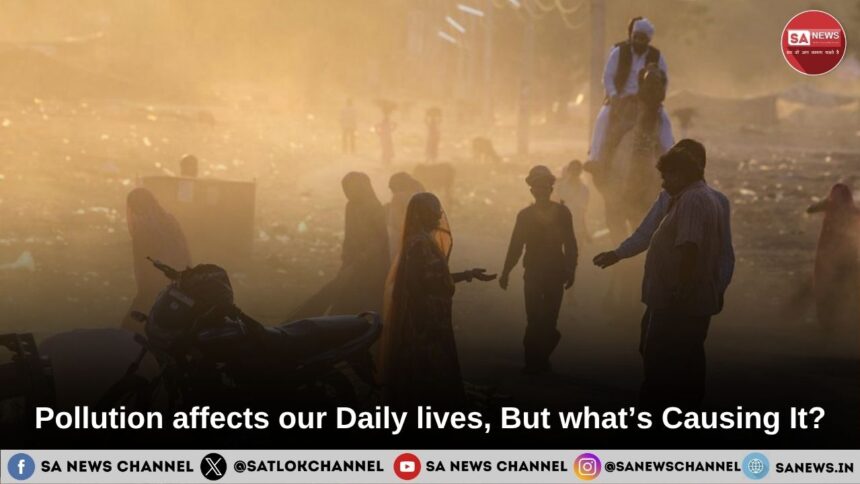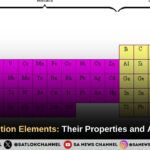All over the planet, we often see people driving cars, riding bikes, cutting trees, and doing other harmful activities. People cause pollution—often knowingly. For example, around 22.3% of people are known to smoke, which contributes to pollution. You might say, ‘Air conditioners pollute the environment too!’ Yes, they do—but that’s because they are motorized and consume electricity, often generated from fossil fuels.
They cool the interior of the car, but the vehicle emits pollutants such as carbon dioxide (CO₂). Although we exhale CO₂ naturally, excessive amounts released from vehicles and industries increase greenhouse gases and contribute to global warming. That pollutes the environment.
Pollution has many causes and comes in several forms, including air, water, noise, light, radioactive, and soil pollution.
Let’s start with the types and how they affect us first.
Air Pollution
Air pollution is caused by smoke. As mentioned earlier, people smoke cigarettes, which is affecting the current state badly. Motorized vehicles running on petrol or diesel, such as buses and cars, emit smoke and other harmful gases. This type of pollution causes diseases like asthma, pneumonia, lung cancer and chronic obstructive pulmonary disease.
Water Pollution
Water pollution is caused by dumping waste into water bodies, industrial runoff, sewage discharge, and deforestation. This leads to waterborne diseases such as diarrhea, cholera, typhoid, and can affect thyroid function due to contaminants like lead and mercury.
Noise Pollution
Noise pollution is caused by loud noises, loud sounds in headphones, loud motorcycles and loud people speaking. A personal example of noise pollution I experienced was a wedding with extremely loud DJ music. This type of pollution causes hearing loss, high blood pressure, speech interference and sleep disruption.
There are many other types of pollution too, but it’ll take ages to describe. So, let’s move on to another thing: solutions.
There are several steps you can take to help reduce pollution and protect the environment. For instance, a study shows that you could paint your roof white as the colour white is known for reflecting light. Darker colors like red, blue, or black absorb more sunlight, causing your house to heat up. The same thing applies to cars. If you see someone cutting trees, avoid confrontation. Instead, contribute positively by planting trees.
If you don’t want to bother going out with some seeds and plant a tree or something, then you could just eat a fruit or a vegetable and you can plant the seeds from fruits or vegetables in a pot at home. Also, you should not waste paper. Paper is made from trees, and trees have to be cut down to make paper. This is known as deforestation. It has a severe impact on the environment. It causes soil erosion which causes major crop loss. Trees provide oxygen and also keep the climate cool. This helps avoid global warming.
There are many ways to prevent pollution. For instance, you can reserve energy. You could also drive your car less, avoid burning things like garbage, use biodegradable materials like paper or cloth, and do some basic things like not throwing waste on the ground or into water bodies, plant trees (of course), and avoid smoking.
FAQs
- What is the definition of pollution?
Answer: Pollution refers to activities that harm the environment and ecosystem, such as smoking, littering, and industrial waste.
- What are the main causes of pollution?
Answer: The main causes include smoking, littering, vehicle emissions, industrial waste, and deforestation.
- How can we stop pollution?
Answer: By practicing the 3 R’s—Reduce, Reuse, and Recycle—and adopting eco-friendly habits.
- Should we try to remove pollution?
Answer: Yes, reducing pollution is essential for maintaining a healthy planet and preserving ecosystems.









